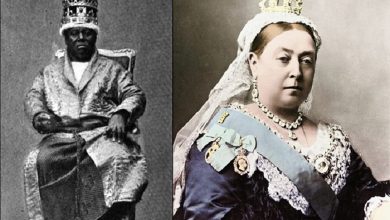What is known about formidable Byzantine Empress Theodora?
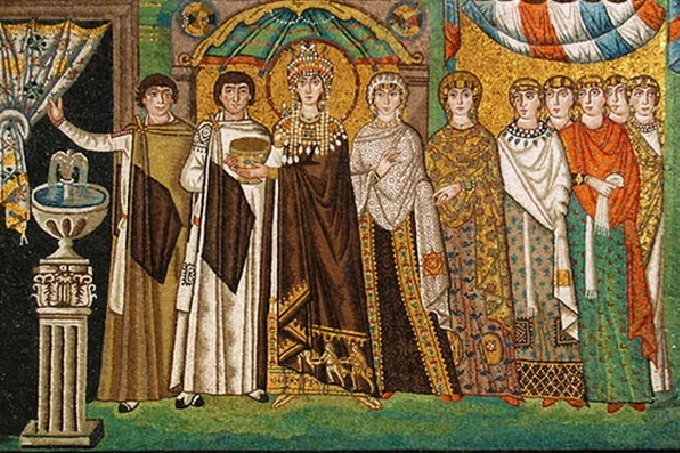
The tenacious gaze of the formidable Empress looks directly into the soul of every visitor to the Basilica of San Vitale in Ravenna from the mosaic. Theodora looks, as befits such a brilliant Byzantine ruler. She was once one of the most influential and powerful women.
Historical information about her is full of contradictions. The path of life, which passed this great woman, still causes a storm of curiosity and a lot of questions. How does an ordinary harlot manage to get not only the imperial crown but also to become one of the most revered Orthodox saints?
History of Empress Theodora
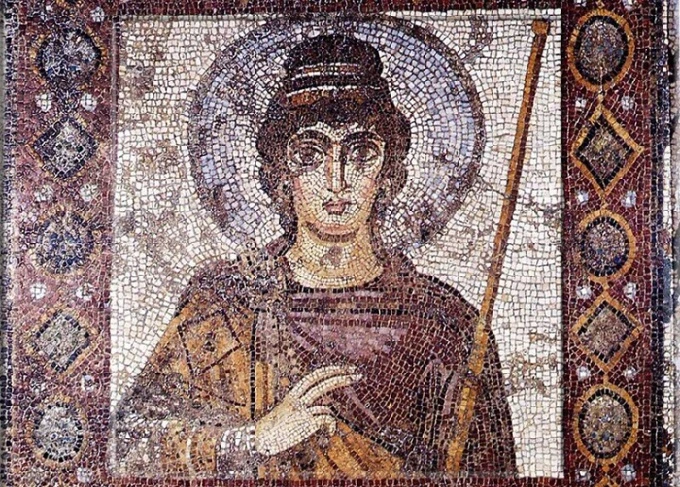
Theodora was not just the wife of Emperor Justinian, she was his full partner. She was considered one of the most powerful and influential women. On the mosaic, she is depicted as such. Only the image in history does not quite correspond to the image of the saint, which is represented by the Orthodox Church.
This is because the main information about the Empress comes from the poisonous pen of the Byzantine historian Procopius of Caesarea. He did not write anything good about Theodore. On the contrary, the chronicler represented the royal couple as real “demons” and denigrated them as best he could.
There are so many exaggerations and insults in his writings that sometimes it begins to seem that this is just a tabloid press. The Empress, in general, according to him, is simply a fiend.
Procopius skillfully relishes every unsightly detail of Theodora’s dark past. He endlessly focuses on the fact that she was once a dancer and a hetero. Moreover, the historian writes that her promiscuity is not the main sin.
The Empress was insanely cruel, vindictive, and despotic. The wickedness of this woman simply knew no bounds. Many historians subsequently drew information about the controversial nature of this complex and ambiguous nature from the writings of this biased chronicler.
Procopius seemed to be thoroughly saturated with hatred not just for Theodora herself, but for all women in general. He is endlessly irritated by the power of the Empress, her unconditional influence on the Emperor… So who was Theodora? Where did she come from?
Empress Theodora’s Youth
Despite everything that Procopius wrote about her, the woman’s belonging to the most ancient profession is not confirmed in any way. Most likely, a bias is to blame for the girl’s origin. She came from a family of circus performers, presumably from Cyprus.
Her father was a bear trainer and her mother an actress. When Theodora was five years old, her father left the world, and she and her mother were left destitute. The widow did not grieve long and soon remarried. The family lived very poorly. From an early age, the girl began to participate in various circus performances. She was a dancer. Procopius writes that the focal point of all her shows was indecent dancing with a display of intimate parts.
Quite a long period of her life is very vaguely known. There are many versions. Some wrote that she gave birth to a child and ran off with her lover to North Africa. Others say that she became the mistress of an influential Roman regional governor and lived with him for several years until she became bored. Both versions agree that at one point in her life Theodora was influenced by Christianity.
It is unknown whether the former sinner repented just then, but the fact is clear. When the future Empress returned to Constantinople – she was a completely different person. She tried to lead a quiet and chaste life, earning her living by sewing. During this period, her future husband and future Byzantine Emperor Justinian appeared in her life.
Who is Emperor Justinian
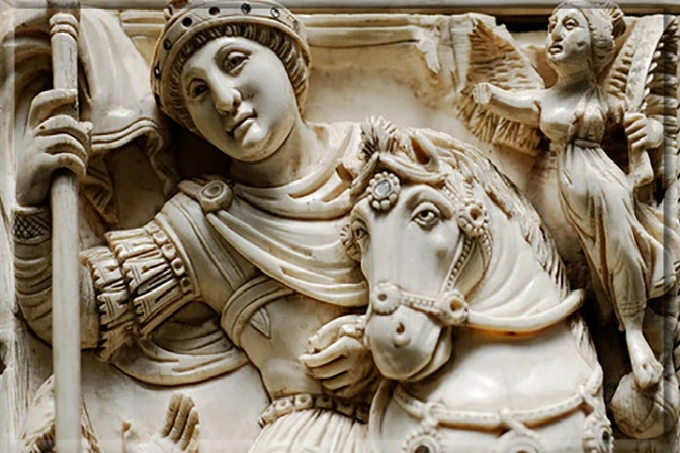
One of the most famous and wise rulers of Byzantium was born into a poor peasant family. Parents hardly imagined that far from the first offspring, whom they named at birth Peter Savvaty, would once ascend the throne.
Life is unpredictable. From childhood, the boy was distinguished by a sharp mind and ambition. He must have gone after his maternal uncle. A few years ago, he also decided to break out of hopeless poverty and went to conquer the capital of the empire.
He walked to Constantinople, for he was young, strong, and purposeful. Luck smiled at the young man – he became one of the palace guards of the then Emperor. He was tenacious and capable. A couple of years passed, and he became the head of the guard.
Peter also decided to try his luck in the same way. As soon as he got older, he went to his uncle. He accepted his nephew willingly – he really needed faithful companions. The uncle adopted the young man and gave him a good education. He was illiterate. Peter supported and helped him in everything. As a result of joint efforts, the formerly impoverished peasant became Emperor Justin I. The nephew, in honor of his uncle, took the name Justinian. It was during this period of his life that he met Theodora.
A love story
Procopius describes Justinian’s feelings too simply: Theodora was beautiful, skillfully flirted, and the heir to the throne was inflamed with passion for her. Only here, the usual passion cannot dominate a person throughout his life. Even the biased historian himself found no reason to doubt the fidelity of the spouses to each other. If there was something like that, he would definitely mention it!
Justinian used all his influence to avoid obstacles to their official marriage. The time came, and his uncle passed away. Justinian himself became Emperor, and the former circus actress and dancer placed the imperial crown on her head.
The former peasant became a very wise ruler. He was not very loved for his rigidity, but it was his policy that turned Byzantium back into a powerful empire, temporarily restoring all its former splendor and grandeur. The Emperor carried out a lot of reforms, increased territories, and created the famous “Code of Civil Law”. Based on the latter, the entire modern system of legal activity of most states exists.
Many believe that all these achievements could not have happened if not for Theodore. It was she who became not just the woman of his dreams and the love of his life, but a faithful companion and adviser in all matters.
She changed many laws that dealt with women’s rights. In a way, she can even be called the ancestor of the feminist movement. Theodora helped women who found themselves in difficult circumstances, built shelters.
Along with this, Procopius mentions that she never forgave any of her offenders. She and Justinian were complete opposites of each other. He was soft and indecisive. Theodora was strong-willed and stern. She really did not forgive insults, but she was fair.
Thanks to Theodora, Justinian managed to retain power and the throne. Once, nobles dissatisfied with his tax policy revolted against him. It was planned to enthrone the nephews of the former Emperor. The Emperor collected gold and jewels and wanted to flee. The Empress did not allow it. She then delivered her famous fiery speech, which went down in history.
As a result, the military changed their minds. Some of the rebels were killed, some were bribed, pretenders to the throne were executed, and order in the state was restored. Many historians admit that without Theodora, Justinian would not have taken place as a great emperor.
Canonized couple
Justinian and Theodora were unanimous in their support of Christianity. The Emperor built many temples. Among them is the magnificent Hagia Sophia. Despite all the negative characteristics, most chroniclers describe Theodora as a faithful Christian. She honored the institution of marriage and did charity work. She also influenced her husband in this regard. Thanks to the unity of the state and church policy, the empire became so powerful.
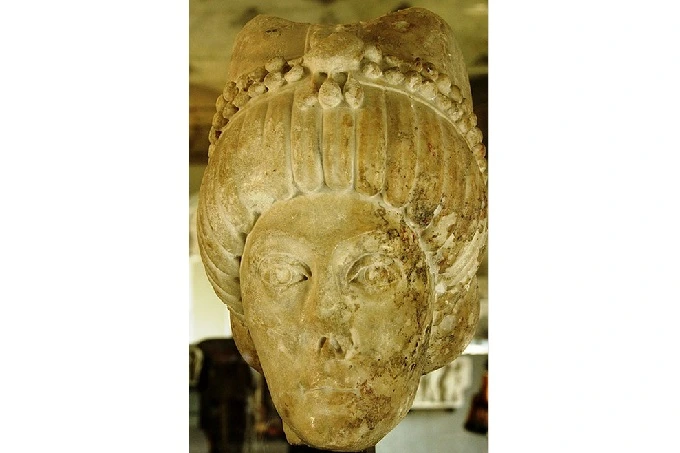
The Empress died of cancer at the age of 48. The Emperor survived his wife by 17 years. He never married again. No love affair is known to history, and he honored his beloved wife even after her death. Her memory was sacred to him. For their services to the church, Justinian and Theodora were subsequently canonized.



